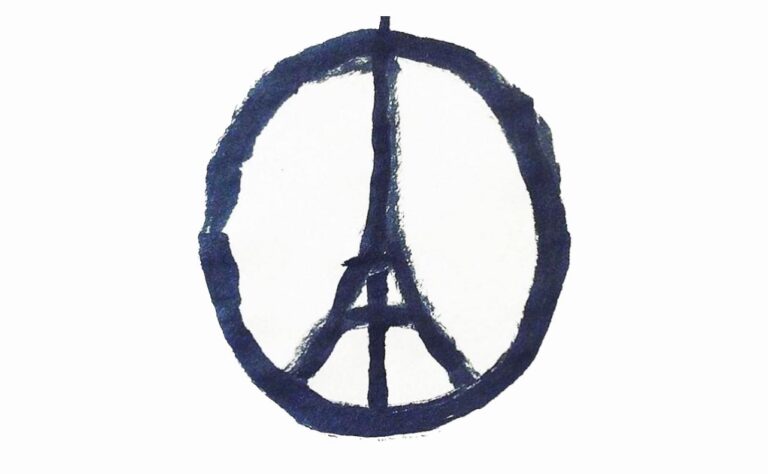Girlhood and Desire in The Lightness

“I became uncomfortably aware of my pajama pants. My pajama pants had popsicles on them. The popsicles had faces. I think the faces had their tongues sticking out, but I may be self-flagellating now,” says Olivia, the narrator of Emily Temple’s debut novel, The Lightness, out today. Olivia tries to convince listeners of her inherent badness and how responsible she is for the horrible thing she alludes to at every twist of the plot. “You should not, under any circumstances, expect me to be the hero of this story,” Olivia narrates from a post-college vantage point. “You might as well learn this now: even the tiniest bit of power turns me instantly immoral.” Olivia’s confessions flag her insecurity as she attempts repeatedly to warn her listener about how unlikeable she is.
But the teenage girl Olivia describes, whose father has disappeared and whose mother is abusive, seems like any other awkward teenage girl whose parents have gone through a bad divorce. She’s desperate for love and connection, acceptance, and the feeling of being desired. Her story is one we’ve heard before, replete with catty girls, a hot guy, daddy issues, and sexual awakening. Temple’s setting for the story, though, and the characters’ avowed goal are unfamiliar. Olivia tells the story of the summer she spent at The Levitation Center, as the Buddhist retreat is nicknamed, where she is enrolled in the “Special Teen Retreat: Becoming a Warrior in Body, Mind, and Heart,” which she privately calls the “Buddhist Boot Camp for Bad Girls.” Olivia has chased her practicing Buddhist father here, the last retreat he went to before he disappeared, and now she’s seeking him through his belief system, which her areligious mother forbid Olivia from subscribing to until, as her mother said, her brain had developed or, she joked, until she was married.
Early on, Olivia draws the listener’s attention to her self-consciousness about her body. In the cab on the way to the Center, Olivia notices the plastic figure of a woman dangling from the driver’s rearview mirror. “I was reminded, again, of the shapes of women,” she says, “the impossible geometry into which I was meant to fold myself.” This presages the summer to come, a summer full of girls who are all attracted to the young, muscular gardener, Luke, or else to themselves, and Olivia wears her desire to belong like cheap perfume no one has told her is tacky. Luke becomes an easy target for her sexual desire as well as her desire to simply be noticed when she’s assigned to work in the garden with him for “rota,” the chore assignment. It’s this assignment that ultimately catapults Olivia into the aloof clique of Serena, the ringleader Olivia becomes obsessed with; Laurel, the beauty; and Janet, the tomboy. “‘We can smell our own,’” Serena says to Olivia, and in response, Olivia thinks it “was the nicest thing anyone had ever said to [her].” Later, she reflects, “So even if I hadn’t worshipped their collective beauty, or their declarative freedom, or their easy belief in my father’s religion. I would have worshipped this: their flagrant, defiant belonging to one another. I worship it a little even now. Yes, despite everything—no, because of it. I am perverse, you see. Please note that I never pretended otherwise.” She hasn’t grown out of, in other words, her deep desire to belong and how attractive it is to see belonging, especially when those who belong have the lithe bodies of teenage girls. But Olivia’s description leaves one questioning whether she really is perverse. Haven’t we all been attracted to beauty and belonging even when we see its ugly underside?
Aside from Olivia’s preoccupation with her body, The Lightness is surprisingly visceral in other ways. From beginning to end, the girls’ experience at camp—as aspiring Buddhists—is bodily. They cling to what their bodies look like, what they can do, and how they can use them, trying in particular to levitate and to convince Luke to teach them to. Serena, who twists her mother’s suicide as fuel to something greater—levitation—convinces the clique that she saw Luke levitate the summer her mother died, when she was 11. Night after night, the stakes get higher. At first, the girls harmlessly seek to achieve the Feeling, what Olivia later realizes is ASMR, by raking their nails across a wood comb or drumming their fingers. But their methods become more dangerous as they move from seeking the Feeling to seeking the Lightness: at first just stiff as a feather, light as a board, then something Luke tells them the Irish call the American Dream, which involves punching someone in the sternum so that they pass out. When this doesn’t work for Serena, she demands that Olivia choke her—and she does—which results in Serena fainting and hitting her head on a rock. Olivia’s desire to belong, to be loved and touched by these girls and Luke, trumps her regard for safety, and she even gives up her will to find her father.
Of course, the girls don’t achieve levitation, but they hungrily chase the feeling of being on the edge of something, something that transcends how they usually experience their bodies. When their efforts to levitate fail, the girls decide—as girls do—to make themselves light, to starve themselves, subsisting only on nettle tea and soup like a famous 11th century Buddhist they’ve taken inspiration from. That the girls starve themselves seems inevitable, an act so many girls turn to, and that they do so under the auspices of religion feels flimsy even to them. Laurel jokes about their “Buddhist Master Cleanse”—though Serena reprimands her. Later, standing before the mirror, Laurel squeezes her stomach and says “‘smaller’” even though she loudly announced that she already looks hot in a bikini. “‘Lighter,’” Janet corrects. The girls’ muddled motives make their hurt—different for each—obvious, particularly Olivia, who craves control over her body and the potential to meet conventional beauty standards. “I have never in my life been skinny and romantic,” Olivia says. “For a while, I fancied myself tragic, like a consolation prize. But I had always felt that I was missing some essential experience of youth by never being nubile, thin and limber.” She relishes the new lightness she feels from fasting. “[T]here is something terrible about a girl not neatly zipped into her own skin, or so we are repeatedly told,” she reflects. “There is something rude about it, something offensive to all who see her, especially her friends, who would like her to be beautiful, as beautiful as a mirror. While we fasted, I felt worthy of reflection.” This is one of the saddest moments of Olivia’s story because of how trite her thinking was then and because of how much it fails her. From this moment on, Olivia only faces more betrayal, of herself and by others, and if anything, she’s yet further outstripped by the other girls and their more conventionally desirable bodies.
Olivia thinks often of the Fatties, the hideous and corpulent women her mother sculpts out of rebar and clay. As a child, Olivia had loved one, whom she’d named Beth, “[b]ut when [she] began to become aware of [her] body and the ways it should and should not look, [she] stopped going into the garage” to visit Beth. “I became afraid of the Fatties, as if their grotesquerie might somehow be contagious,” Olivia admits, and she thinks often, too, of the question her mother would idly ask, “Does beauty, in the end, hurt us?” This question sits alongside what it means to be a girl, to be female. There is right and wrong when it comes to how (young) female bodies look Olivia insists, and ironically, none of the girls truly free themselves from their Western belief in mind and body.
Here’s the most poignant moment—it happens early on before the most dramatic things happen: when Laurel, Janet, and Olivia are about to leave Serena’s tent and head back to the dormitory, Serena holds Olivia back. “‘Have you ever had sex?’” Serena asks, but she doesn’t ask as a bid for intimacy or to see where Olivia ranks on the pecking order of coolness. Serena is obsessed with feeling something that will take her beyond her body, but the fainting, alcohol, fasting, and attempts at levitation don’t satisfy. It becomes clear that her bid for control and desire, and her mother’s suicide have unmoored her. Serena rubs Olivia’s temples and walks her through an imaginary scenario of lying on a beach while four men fill her with black sand. “‘The men say: You’re a beautiful girl, Olivia. That’s why we have to do this,’” Serena describes. “Suddenly, Serena slid her finger from my shoulder to my wrist, hard and fast enough that I released a little breath,” Olivia remembers. “She drummed her fingers along the length of my arm.” It can’t be more than a few minutes that Serena enacts this fantasy, a situation reminiscent of two girls on the playground or at a sleepover telling a story with its attendant touches—tight squeeze, cool breeze, now you’ve got the shiveries—as an excuse to touch each other in order to feel something. It’s a feeling that sticks with Olivia, even though she comes to realize that there was “violence in all that touching.” Olivia asserts, “Your body is a toy, a prop, a proof . . .There’s nothing casual about it.” Still, the sand sticks with her, the drumming, Serena raking her fingers along a wooden comb she favored—some touch was better than no touch.
Olivia doesn’t come out on the other end having made peace with human suffering and having accepted emptiness and all the other Buddhist tenets, Westernized or not, that she heard her father say so many times and that Serena—with her fitting name—serenely spouts, prizing herself as one of the few who truly understand. Olivia never lets her listener lose sight of her younger self as a pathetic, undesirable teenager chasing after a boy and the pretty, popular girls while mourning the disintegration of her own family, so when the horrible thing happens and Olivia blames herself, it’s hard to see things that way. The clique of girls, and girlhood itself, fails her, and so does religion, her father’s in particular. When religious belief is “unexamined . . . for too long . . . it eats away at your body, turns you stupid, kills you,” Olivia asserts. She doesn’t find herself or her father, and she leaves camp not a warrior of mind, body, and heart, but as a wounded girl who carries the scars of that summer forever along with lessons she learned at the highest stakes. “Every girl wants more from the world,” Olivia observes. “Every girl wants magic, to transcend the mundanity of her life. Every girl wants power.”
This piece was originally published on June 16, 2020.


